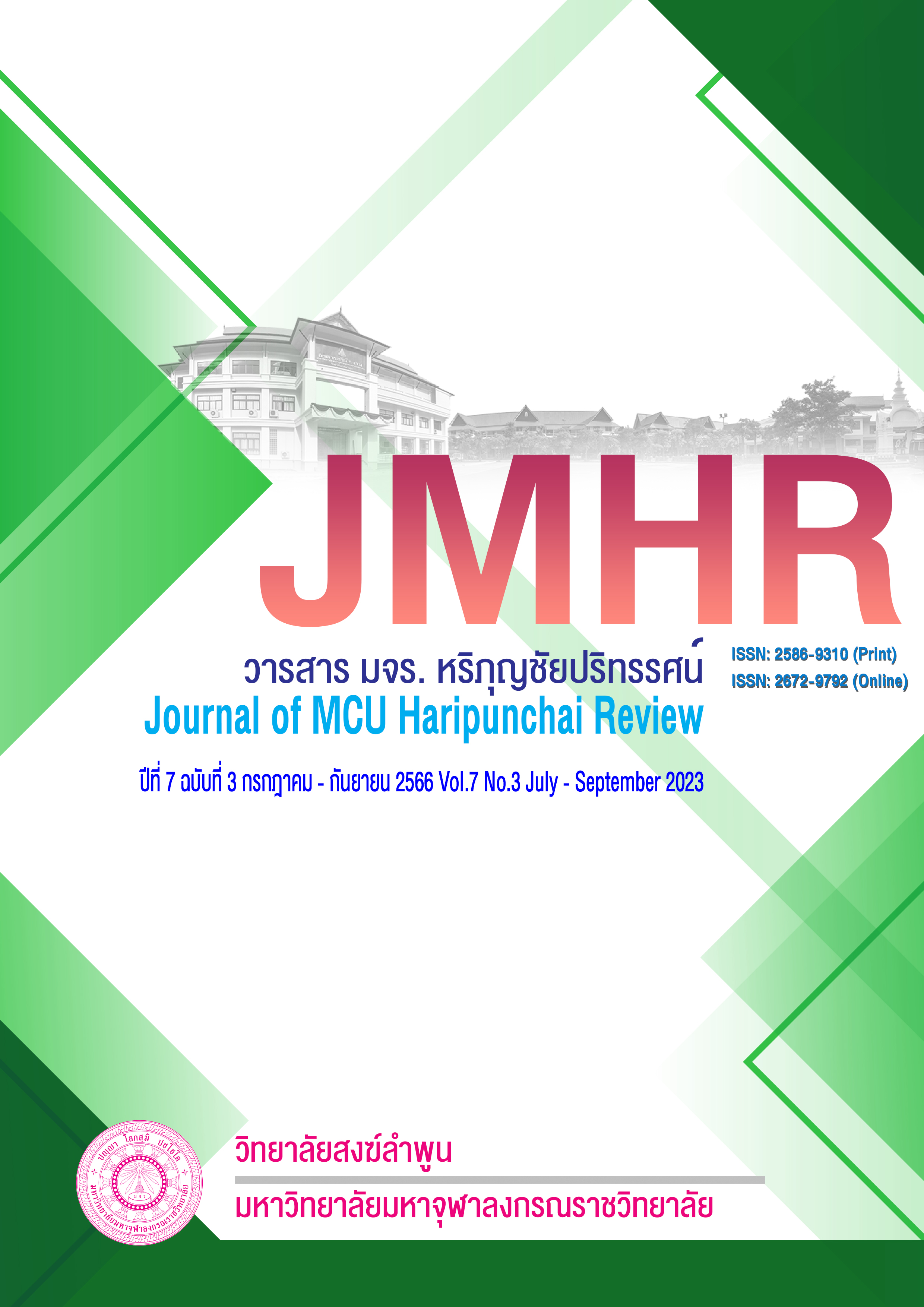The effect of globalization to local culture in Rural Society
Main Article Content
Abstract
In the past, Thai rural society was filled with simplicity and sharing. When Thai society adopted the concept of globalization, there were many changes. After the National Economic Development Plan 1-8 that led Thai society form Thailand's agricultural society to become an industrial society. From the spread of prosperity from large cities to the outer regions, including the distribution of income to the locals. As a result, there has been a huge change in rural society and culture since the past. The way of life of people in rural society has changed. People in rural societies are far from the dynamics of large cities. It has begun to change into a new rural society that combines traditional cultural identity and the hustle and bustle of the big city society because the media influence it under the current of globalization. That came to play a role, such as Capitalism and Pop Culture. However, government agencies to organize activities that make children and youth aware of the risk of losing local culture and preserving culture. The result will cause children and young people are considered to be at a higher risk of being influenced by foreign cultures than older people, which will have an impact on society, traditions and culture. In long term, the culture may be forgotten from Thai social.
Article Details

This work is licensed under a Creative Commons Attribution-NonCommercial-NoDerivatives 4.0 International License.
References
References:
กระทรวงวัฒนธรรม. (2563). ประเพณีเลี้ยงผีขุนน้ำ. สืบค้นเมื่อ 3 มกราคม พ.ศ.2566, https://www.m-culture.go.th/th/article_view.php?nid=34396
กนกวรา พวงประยงค์ และ สานิตย์ หนูนิล. (2561). สังคมชนบทไทยสมัยใหม่กับปัจจัยกำหนดวิถีการดำเนินชีวิต. วารสารสังคมศาสตร์เเละมนุษยศาสตร์, 44(2), 34–58.
กันทนา ใจสุวรรณ. (2563). วิถีชีวิตคนชนบทไทยยุค 4.0. วารสารปัญญาปณิธาน, 5(1), 29–41.
ชาย โพธิสิตา. (2555). ชนบทไทยในวิถีทุนนิยม. วารสารราชบัณฑิตยสถาน, 37(4), 163–185.
นริศรา แสงเทียน และ เมชฌ สอดส่องกฤษ. (2560). ภาพสะท้อนการสื่อสารของรัฐบาลเพื่อการฟื้นฟูวัฒนธรรมความเอื้อเฟื้อในสังคมจีนปัจจุบัน. วารสารภาษา ศาสนา และวัฒนธรรม, 6(2), 185–220.
ประทวน วันนิจ และ มนูญ สอนโพนงาม. (2565). วิกฤตวัฒนธรรม เปลี่ยนผ่านวิถีชีวิตสังคมไทยในยุคดิจิทัล. วารสารวนัมฎองแหรกพุทธศาสตรปริทรรศน์, 9(2), 124–126.
ภัชลดา สุวรรณนวล และ พระปลัดระพิน พุทธิสาโร. (2564). การบริหารจัดการชุมชนตามหลักสังคหวัตถุ 4. วารสารมหาจุฬานาครทรรศน์, 8(2), 325–336.
ภิญญพันธุ์ พจนะลาวัณย์. (2563.). เครื่องแบบ ทรงผม หน้าเสาธง ไม้เรียว. สำนักพิมพ์ มติชน.
เลหล้า ตรีเอกานุกุล. (2562). การเฝ้าระวังทางวัฒนธรรมของประชาชนในจังหวัดเชียงราย. สักทอง : วารสารมนุษย์ศาสตร์เเละสังคมศาสตร์ (สทมส), 25(4), 36–42.
วาสนา ปานนวม. (2555). การส่งเสริมการ์ตูนของญี่ปุ่น: เครื่องมือเพิ่ม Soft Power และผลประโยชน์ทางเศรษฐกิจ. วารสารญี่ปุ่นศึกษา, 29(1), 76–85.
สำนักงานสภาพัฒนาการ แผนพัฒนาการเกษตรในช่วงแผนพัฒนาเศรษฐกิจและ สังคมแห่งชาติ ฉบับที่ 12 (พ.ศ.2560 – 2564). กรุงเทพฯ. 2560.
อภัสณา อัศวรังสิตแสง. (2564). การก่อตัวของวัฒนธรรม กระแสเคป๊อปและสินค้าวัฒนธรรม ในฐานะอาวุธทางการเมือง. วารสารสหวิทยาการ วิทยาลัยสหวิทยาการ, 18(1), 154–180.
Benedict, R. (1987). Thai culture and behavior : an unpublished war-time study dated September 1943. Cornell University, Dept. Of Far Eastern Studies.
Campbell, K. M., & O’hanlon, M. E. (2006). Hard power : the new politics of national security. Basic Books.
Croucher, S. L. (2018). Globalization and belonging : the politics of identity in a changing world. Rowman & Littlefield.
Nye, J. S. (2004). Soft Power: the means to success in world politics. Public Affairs.
Poshakrishna, P. (2022). Is Globalization a Threat or Opportunity to the Local Culture of Spirit Worship?. Journal of Roi Kaensarn Academi, 7(11), 591–601.
Poshakrishna, P. (2022). The belief in Animism towards village people’s way of life: A case study of ritual ancestor spirit worship in Mae Mao Khee Lek Village, Mon Pin Sub-district, Fang District, Chiang Mai Province. [Unpublished manu-script], Sheffield Hallam University.
Throsby, C.D. (2001). Economics and culture. Cambridge: Cambridge University Press.


